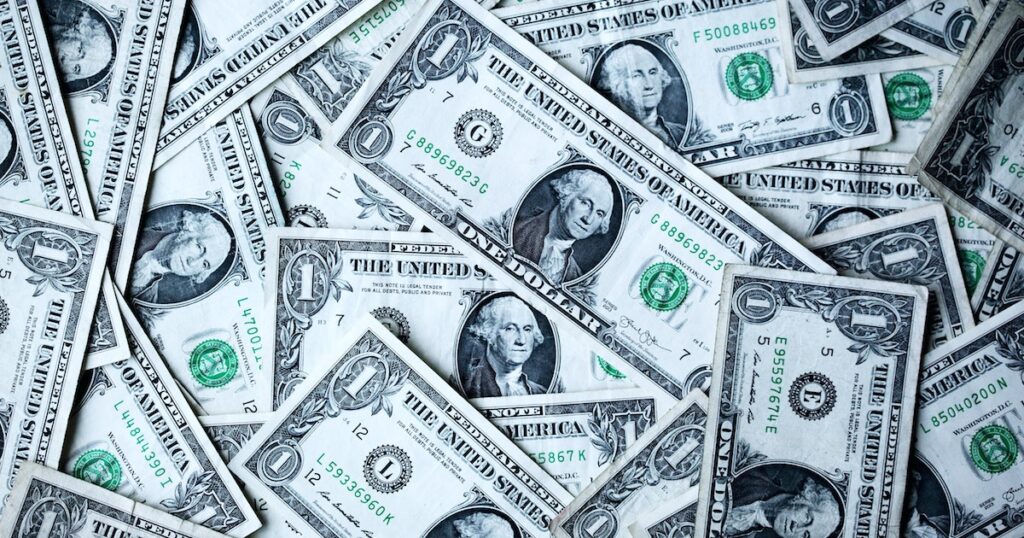
How Much Will You Make With a Master's in Financial Engineering?
Do you see a math puzzle when you look at [...]

People—and, as a result, businesses and markets—are irrational, but they’re predictably irrational. Economists look at the choices we make and the patterns that emerge, then build models to make predictions related to business, education, health, the environment, and of course, the economy.
Is economics science? There’s no consensus on that. Is it useful? You bet. Businesses, governments, schools, and political organizations all rely on economists to drive decision-making. Economists help companies develop their financial strategies, policymakers devise laws and regulations, and regular Joes figure out what to do with their money by predicting what markets will do. They also produce cool podcasts
Given that, a Master of Business Administration might seem like the least useful degree for someone passionate about economics. Very few business school programs devote credit hours to deadweight loss, Laffer curves, and behavioral psychology, after all. Further, there are plenty of Master of Science in Economics and Master of Arts in Economics programs that do.
If your interest in economics goes beyond the theoretical and you want to apply economic theory to practical business and policy matters, however, there’s another option: the MBA in Economics. On-campus and online MBA in Economics programs are designed to give students insight into how economic principles impact domestic and global markets, banking, and to a lesser degree, politics as it relates to business. This academic path combines economic principles andbusiness fundamentals. The result is a very versatile business degree.
In this guide to MBA in Economics programs, we cover:
Economics is a part of most MBA programs because the economy has such a huge impact on business. An MBA in Economics is simply a traditional business degree with a handful of extra economics courses added to the curriculum.
However, it’s also one of the most holistically integrated specializations you can choose. Students in healthcare MBA programs or MBA in Aviation Management programs will invariably take classes specific to those specializations and only tangentially related to business. The concentration courses in MBA in Economics programs, on the other hand, will almost all relate in some way to economics’ applications in business.
Students who choose to pursue this degree are often fascinated by how global markets, consumer behavior, and economic cycles affect business. Once they have a deep understanding of the outside forces that can lead to success or failure in the corporate world, they can work in various fields, from banking, insurance, and manufacturing to government and research.
| University and Program Name | Learn More |
|
Pepperdine University:
Online Master of Business Administration
|
|
|
Stevens Institute of Technology:
Online Master of Business Administration
|
|
|
Merrimack College:
Master of Science in Leadership
|
|
|
Merrimack College:
Master of Science in Management
|
|
|
The University of Tennessee:
Online Master of Business Administration
|
The prerequisites for acceptance into on-campus and online MBA in Economics programs are often identical to or very similar to the typical prerequisites for acceptance into a school’s traditional MBA program:
That said, there are MBA programs that no longer have GMAT requirements, or that waive GMAT requirements for applicants with exceptional CVs. Similarly, you can find programs that admit students without a lot of work experience (though others prefer that applicants have five or more years of related work experience). The best thing you can do is read admissions requirements carefully before applying to be sure that you meet a school’s criteria.
People think of economics as a financial discipline, but the reality is that economics, like business, has a place in seemingly unrelated fields. The traditional MBA is already an interdisciplinary degree; an MBA in Economics borrows from an even broader range of topics.
There is no set economics MBA curriculum. What you’ll study in this program will vary significantly from school to school. You’ll probably take core courses in business management, economics concentration classes or economics electives, and a capstone course. You may be required to write a thesis. Most programs also include one or more internships or experiential learning requirements.
You might complete your coursework in a prescribed sequence alongside a cohort. Or, you may have free reign to complete core courses and electives in whatever order you choose. Elective options may include:
As noted above, economics isn’t an especially popular MBA specialization, so there aren’t that many programs to choose from. Some of the best full-time and part-time economics programs, however, can be found at prestigious business schools like:
This is a short list, but that’s because it only includes best-of-the-best b-schools that offer an MBA with an economics concentration. There are other MBA in Economics programs out there. Note that they may not take you as far as the ones at the colleges and universities above.
Simply put, these are schools that create successful careers. You can learn the ins and outs of business and economics in almost any MBA program, on-campus or online, but you get more than a diploma when you enroll in a top b-school.
Earning your MBA in Economics from Booth will cost you a bundle. Still, a simple cost-benefit analysis can’t actually tell you much about the value of the education you’ll receive. That’s because you need to do more than weigh the cost of your degree against the salary boost you will receive.
You should look for MBA in Economics programs that prioritize economics in the general curriculum instead of just giving students space to take four or five economics electives. You should also dig into student outcomes. The very best MBA programs that offer an economics specialization have notable student outcomes because they build robust network-building opportunities into the curriculum and frequently bring in economics experts to give guest lectures. There are also economics clubs and associations on-campus and large and active alumni networks. Consequently, students who graduate from these programs are hired more quickly, earn more money, and advance faster than their colleagues from other schools.
The answer depends on how you define economist. Graduates emerge from MBA in Economics programs with a broad understanding of how the economy and the public policies surrounding it affect business. They work for large corporations, investment banks, government agencies, research labs, and think tanks. They don’t necessarily become economists in the traditional sense. You’ll find economics MBA graduates in positions like:
Many MBA in Economics graduates become entrepreneurs. Their training provides unique insight into what it takes to launch a successful company. They know how specific industries will respond to a new product or service, how to price those products or services competitively, and how to ride out economic ups and downs.
Economists with advanced degrees can also be found in nontraditional positions in healthcare, education, and athletics. Experts have tackled questions as varied (and weird) as:
While an economics MBA will more than likely lead to a career in business, it might also take you in some unexpected directions. In that way, an MBA in Economics can be an excellent way to hedge your bets. If you don’t make it into the c-suite, you can at least make your mark in the social sciences.
Earning an MBA will almost always deliver a salary boost if you work in the corporate world, but how much of a boost depends on your position and which MBA degree program you choose. According to PayScale, the average MBA in Economics degree holder earns about $98,000. The US Bureau of Labor Statistics reports that the median pay for economists in the United States is about $105,000. Both figures are estimates, however, based on survey data that may include financial analysts earning $58,000 and audit directors earning $131,000.
The only way to calculate how much you might earn with this degree on your CV is to consider your career goals. Where do your interests lie? Where do you see yourself in five years? How about ten? Use a site like PayScale or Salary.com to look up the average base pay for each position on your hypothetical career ladder.
Economics isn’t one of the more popular specialization tracks. That means it’s important that you weigh the value of this MBA concentration carefully. If you’re passionate about economics, a Master of Science in Economics that treats economics as a science and is almost entirely focused on economic principles, analysis, and practice may be the better (and less expensive) option. With a one-year master’s in economics, you can become an economist, work as an analyst, make your living in consulting, or join a think tank—all of which will let you spend your days applying economic theories to real-world problems.
On the other hand, there are some fields where having a two-year MBA is the minimum bar for entry. If your five-year-plan involves working in financial services, banking, or business, get an MBA. You might not find every course you take while pursuing an MBA in Economics as interesting as time series econometrics or general equilibrium theory.Even so, you’ll be more attractive to corporate employers once you graduate. Look for programs that devote as much time to economics courses as to business-focused core courses. These may not be at the best business schools, because MBA programs at those schools tend to emphasize business fundamentals over specializations.
It’s a cold calculus, for sure, but if you live, breathe, and sweat economics, that shouldn’t bother you. You absolutely should be thinking about the cost of a graduate degree program versus the payoff—an equation that includes not only the price of tuition, which may be anywhere from $75,000 to more than $100,000 at the best business schools, but also lost income due to time spent away from the business world, missed professional opportunities, and all the extra expenses you may incur (e.g., housing and commuting costs) while pursuing this degree. Balance that against how much you can expect to earn with this degree, how an on-campus MBA program can grow your network, whether an online program can do the same, and the likelihood of getting recruited soon after graduation. Keep in mind that uncertainty is a part of economics, too.
You should also explore every option you can to pay for this degree—including simply asking your employer whether they’d be willing to sponsor your education. If you work for a large company willing to pay some or all of your tuition, it may cost you more in the long run not to pursue this MBA. If you need this degree to advance in your career and you can finance it relatively easily, getting an economics MBA almost certainly makes good economic sense.
Questions or feedback? Email editor@noodle.com

Do you see a math puzzle when you look at [...]

An MBA in business analytics prepares you for a management [...]

Some MBA concentrations are designed to prepare graduates for very [...]
Categorized as: Business Administration, Economics, Business & Management